5 Foods for Mental Health
Foods for Mental Health Support and Wellness
Most likely, you’re aware of the benefits a healthy diet for your physical health. But did you know that nutrition plays a role in your mental and emotional well-being as well? This article explores 5 foods that can support your mental health and wellness – and a few foods not to eat.
The connection between nutrition and mental health
The field of nutritional psychiatry recognizes that the brain needs fuel to function, and it runs best on high quality sources of vitamins, minerals, and anti-oxidants. A well nourished brain has better cognitive functioning, can respond better to stress, is less susceptible to anxiety and depression, and can sustain better moods.
Also, you may have heard the buzz about “gut health” lately. There’s a connection between our gut (or intestines) and the brain. Bacteria in the gut produce neurochemicals that the brain uses to regulate mood. Gut inflammation caused by poor nutrition disrupts the balance of gut bacteria and can lead to increased anxiety and depression.
Simply put: the foods you eat affect the way you think and how you feel.
(Sources: Harvard Health, Healthline, Sutter Health.)
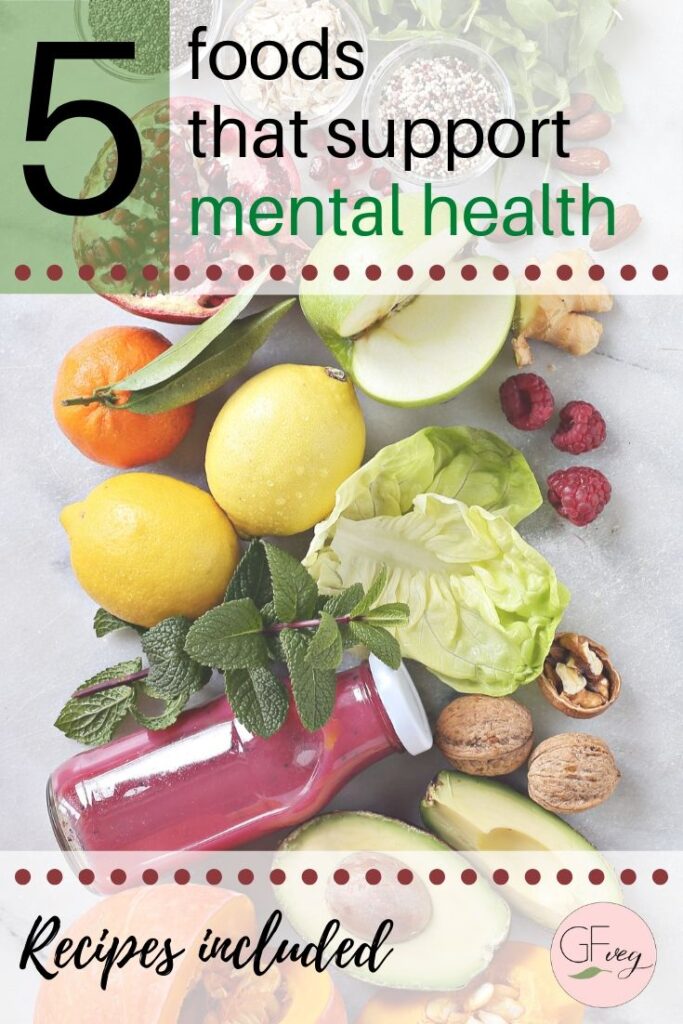
What to eat: 5 foods for mental health support
1: Green Leafy Vegetables
In terms of your brain health, fresh vegetables top the list, and the best options are dark green leafy veggies. Eating leafy greens supports memory and reasoning functions and can slow rates of cognitive decline. Green leafy veggies include the following:
- Kale – one of the most nutrient-dense foods on the planet!
- Collard greens
- Spinach
- Bok choy
- Swiss chard
(Sources: Amy Myers MD, Sutter Health)
Here are some recipes with green leafy vegetables:
- Swiss Chard and Tofu Stir Fry
- Sweet Potato, Spinach, and Smoked Gouda Frittata
- Chocolate Grapefruit Protein Shake (contains spinach)
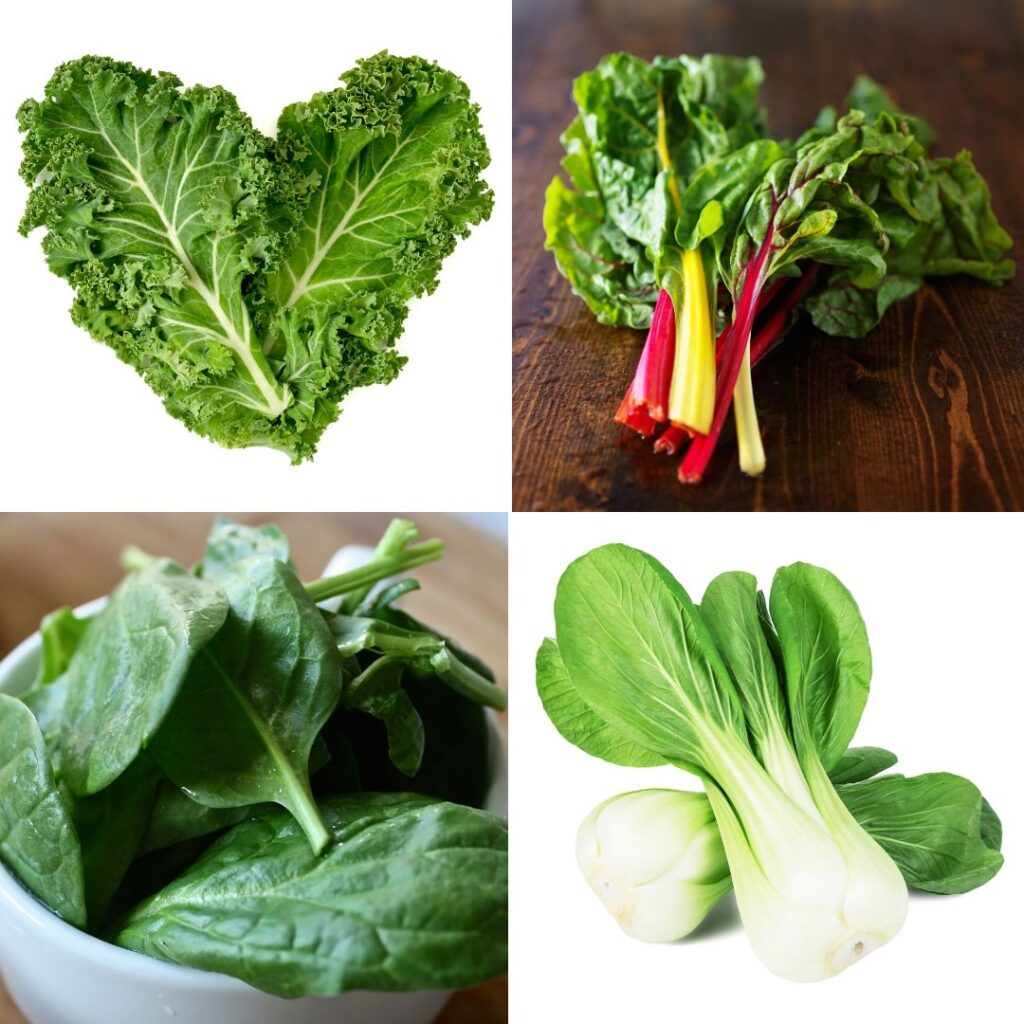
2: Berries
Studies show that the flavonoids in berries help slow rates of cognitive decline. The brain also benefits from their anti-oxidants. Enjoy at least two servings of berries a week – or more, because they’re delicious! Add them to smoothies, or drizzle them with a light topping of agave or honey.
(Source: Mayo Clinic )
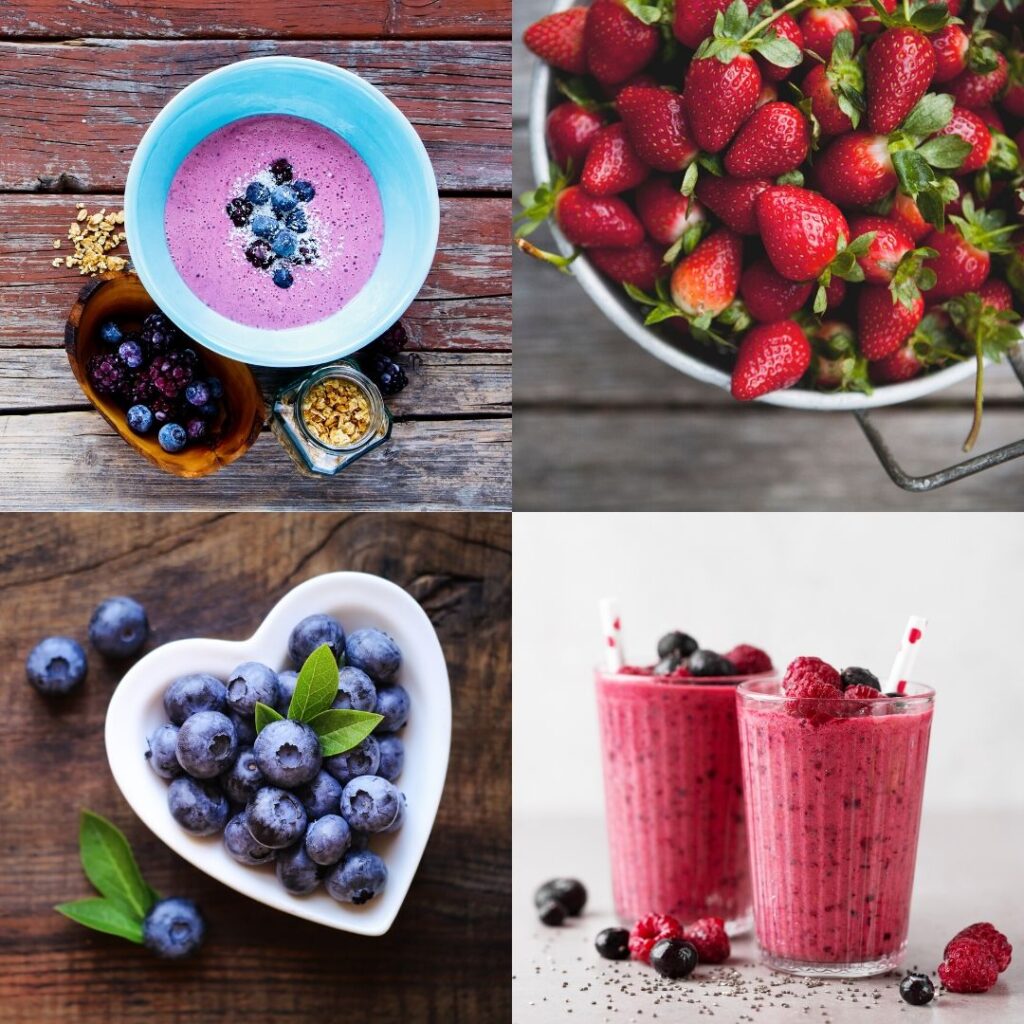
3: Healthy Fats
Healthy fats support your brain function. Nuts in particular have vitamin E, which has brain protective properties. Here are some examples of healthy fats:
- Raw or dry-roasted nuts
- Extra virgin olive oil
- Coconut oil
- Avocado
Try these tips to add some healthy fats to your diet:
- Use a small amount of olive oil or coconut oil as cooking oil during meal prep.
- Instead of using dairy-based or mayo-based salad dressings, drizzle your greens with olive oil and lemon juice, or try this Spring Onion & Avocado Salad Dressing.
- Unsalted mixed nuts make an excellent afternoon snack. Be sure to check portion sizes, and pair them with some raw veggies like baby carrots or sliced zucchini.
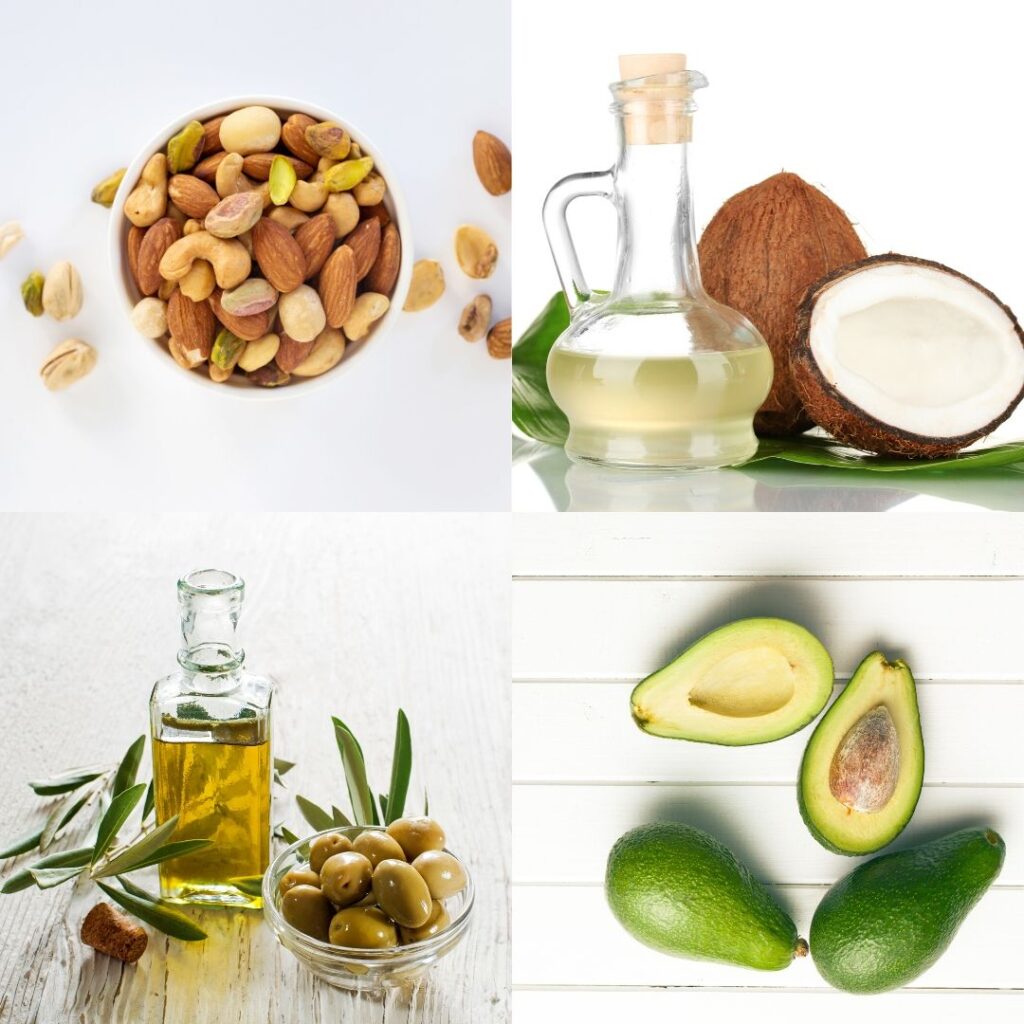
4: Omega 3 Fatty Acids
Not only are people who regularly consume omega-3s less likely to become depressed, but those who suffer from depression or anxiety and start taking omega-3 supplements are likely to feel their symptoms improve. Omega-3s are also critical to brain growth and development in infants, can improve mental disorders, and fight age-related mental decline and Alzheimer’s Disease.
Salmon is famously rich in omega-3 fatty acids, and eating it once or twice a week will help you get your recommended dose. Here’s a quick and easy recipe for a Salmon Weeknight Dinner.
If you don’t eat fish, other sources include flaxseed, chia seeds, and walnuts. You can also consider taking vegetarian omega-3 supplements.
(Source: Healthline, National Institutes of Health.)
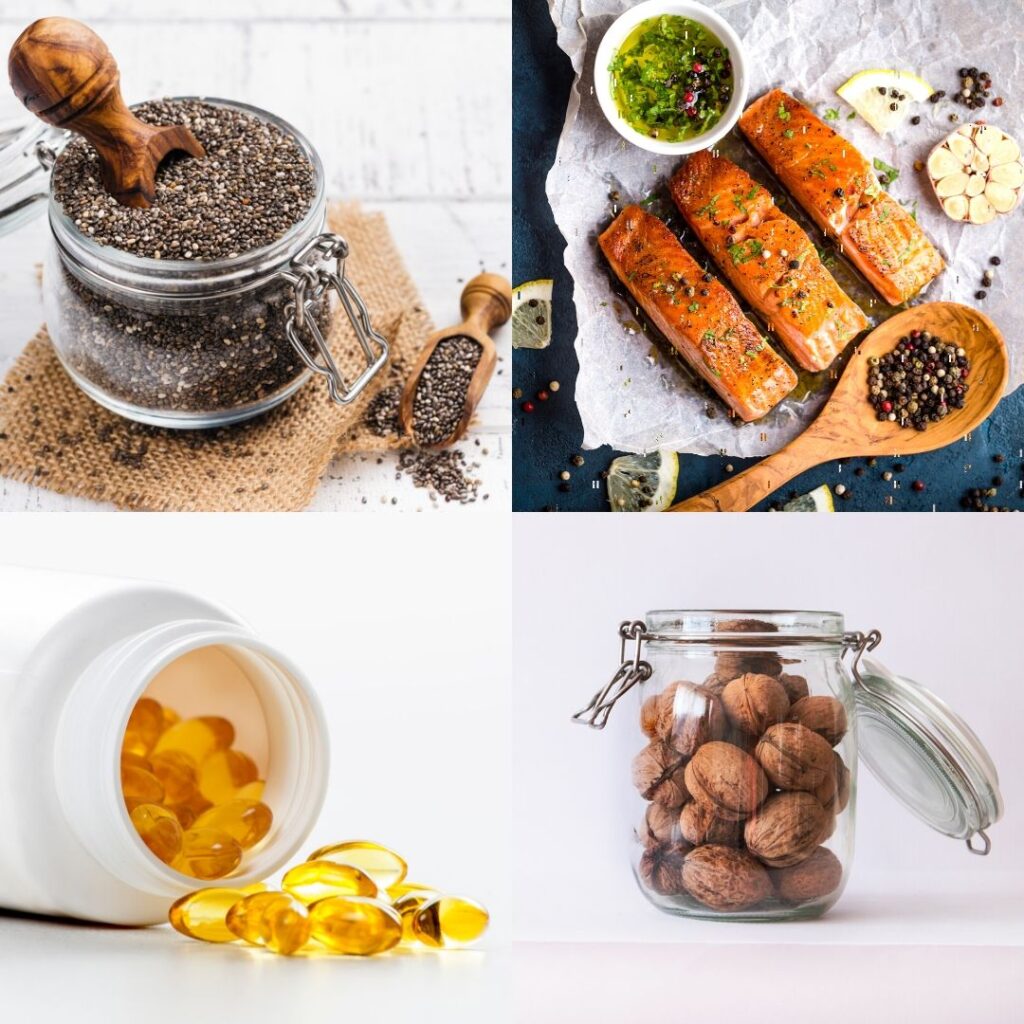
5: Beans and Lentils
Legumes such as beans and lentils are rich in B vitamins, which are critical for brain health. The B vitamins are valuable to your brain and nervous system as they help make the neurotransmitters that pass signals between nerves. To maintain your levels of B vitamins, consider having one small serving of legumes daily.
(Sources: Mayo Clinic, Cleveland Clinic.)
Here are some dinner recipes featuring beans:
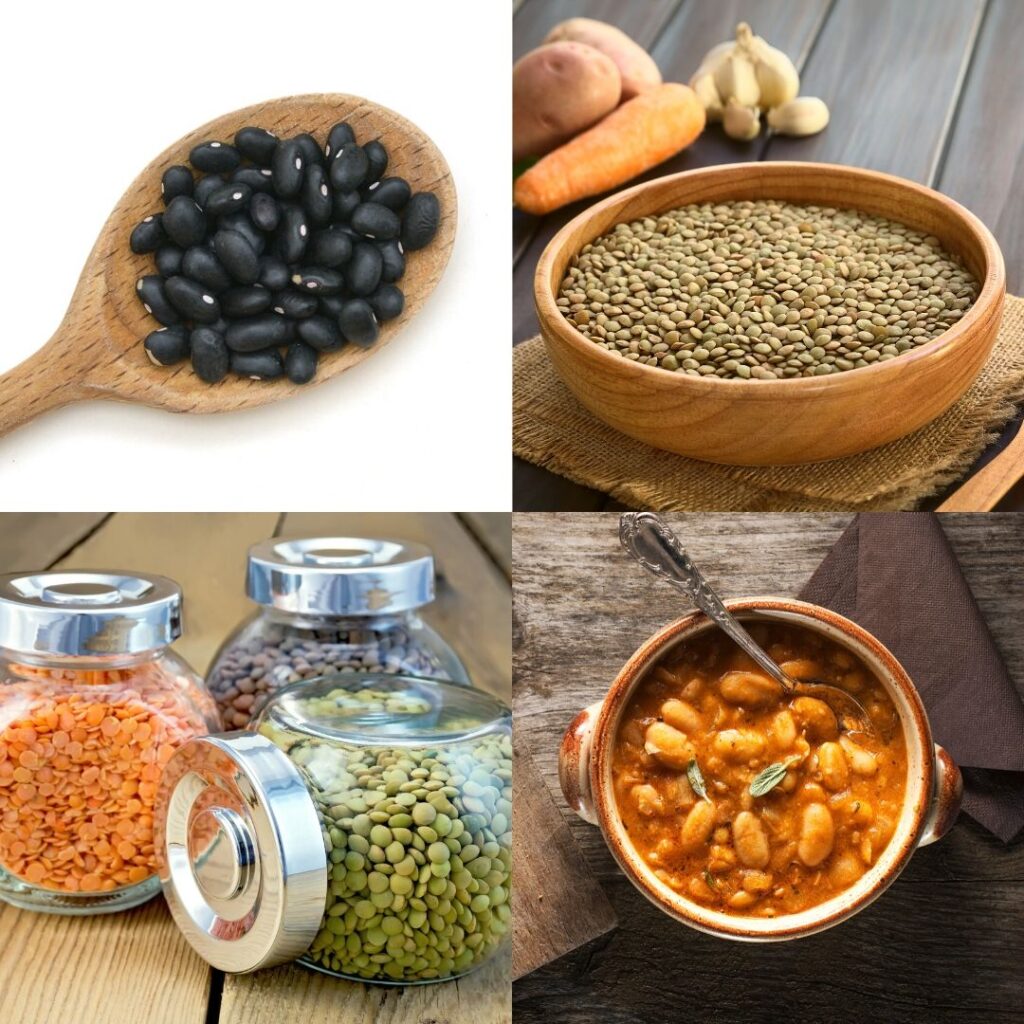
What not to eat: which foods are bad for mental health?
It’s no surprise that if healthy foods helps your brain, food with poor nutritional content will do little to nourish your brain, and therefore can negatively impact your mood and thinking processes. This has been proven in multiple studies. (Sources: Harvard Health, Healthline.)
If you want to improve your emotional and cognitive wellbeing through your diet, here are some foods to skip:
- Processed foods
- Refined sugar, including sweets and sugary drinks
- Refined carbs
Planning a healthy diet to support mental and emotional wellness
If you’re interested in meal planning to support your mental health and emotional wellness, here are some resources to help you:
- 5-Day Detox Meal Plan: This gentle detox program will help rid your body of cravings and jumpstart your journey to better nutrition. This includes recipes and an editable grocery shopping list.
- 7 Health Reasons to Drink More Water: Staying hydrated is essential for your mood, concentration, and memory. This article includes tips on how much water to drink and how to reach your daily intake goal.
- 5 Day Meal Planning Mini Course: Meal planning is an essential tool to staying on track with healthy eating goals. In this free email mini course, you’ll identify meal planning goals, learn tips for prepping healthy meals, and more.
I’d love to hear about your nutrition and wellness goals!
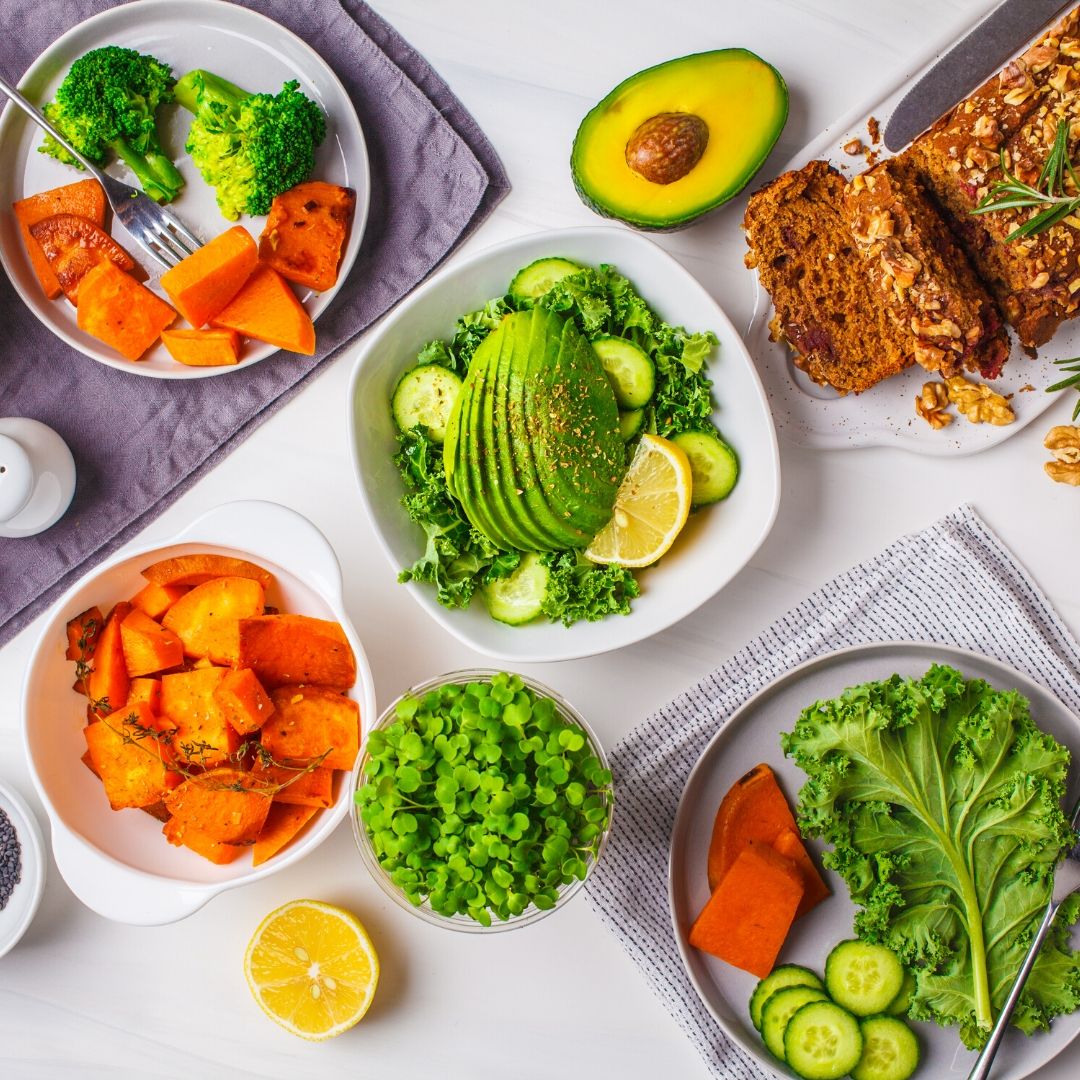
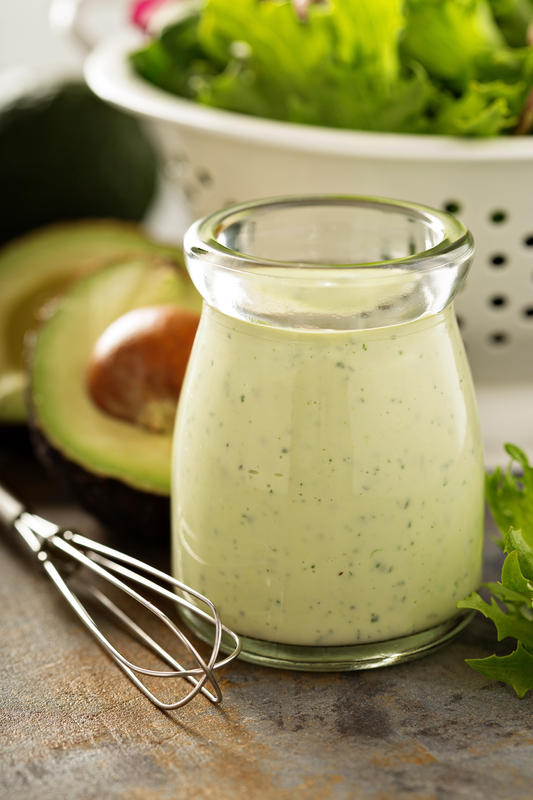
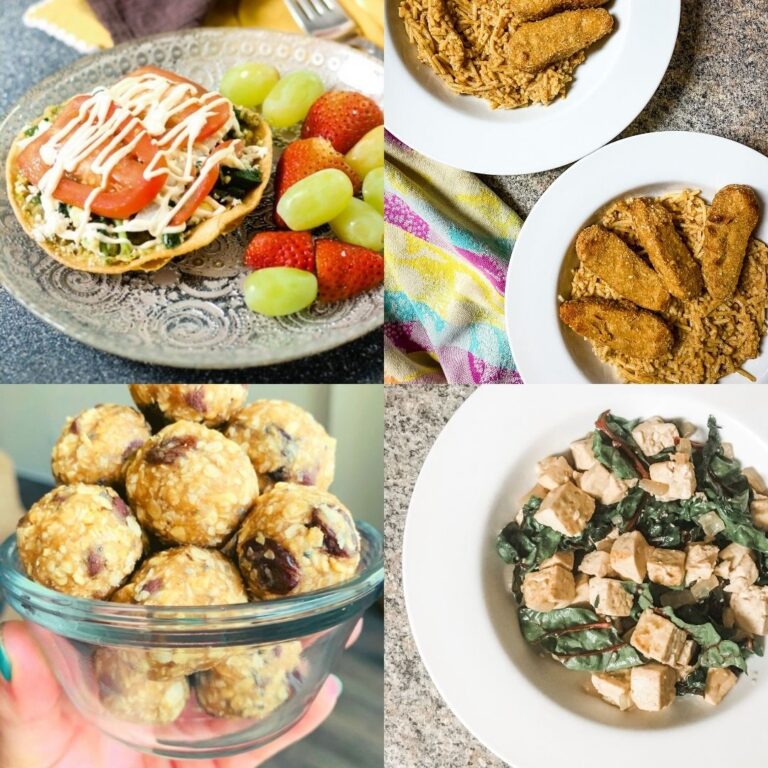
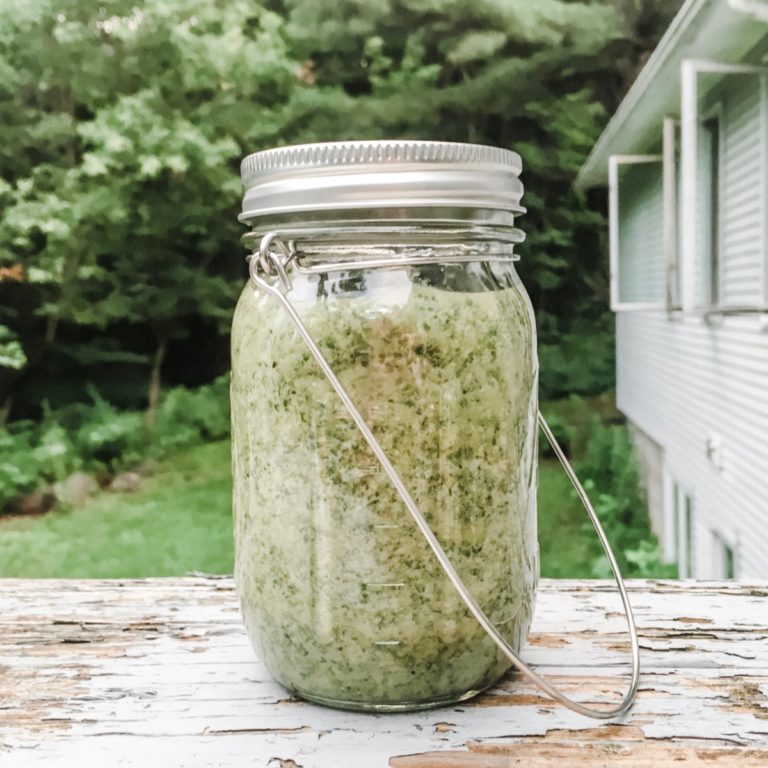

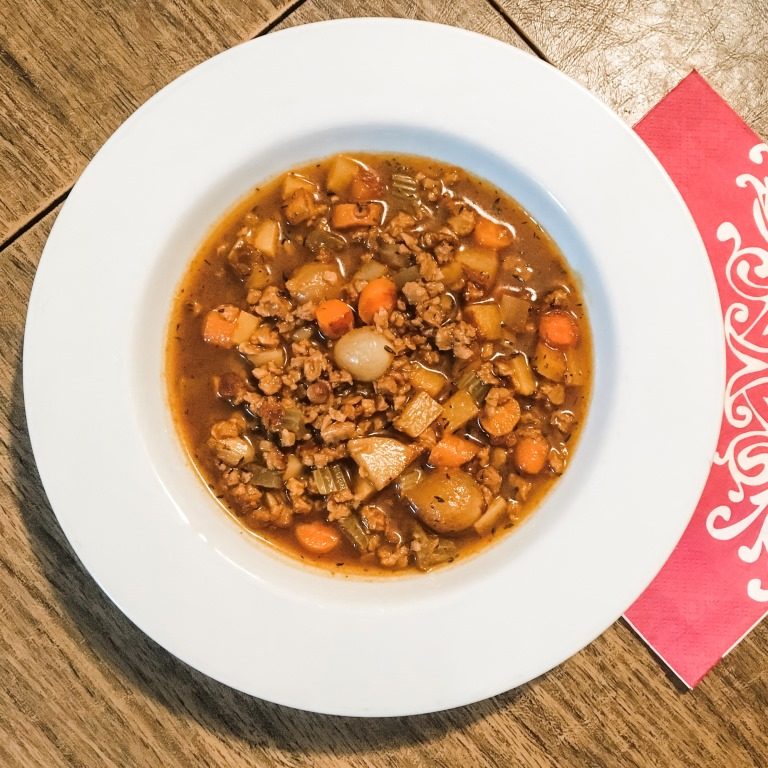
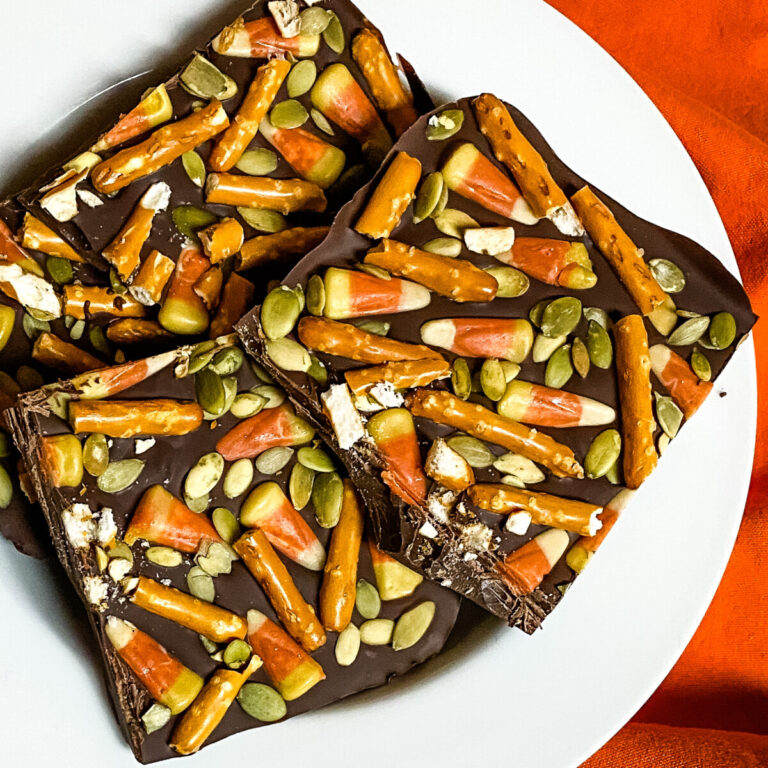
This thoughtfully prepared and written article is exactly what I need.
I’m truly glad it’s helpful to you! 😀 I’ll be using this as a guide for my own family’s nutrition too.
I’ve recently been looking into nutrition more to support my family’s overall well-being, I really appreciated that you included recipes and ways to work each of these foods into our meals. Thank you very much for a well-researched post!
Hi Summer, thanks for your kind words. I’m so glad this is useful to you and your family. I hope you enjoy the recipes, too!
What a great breakdown. Really easy to read and clear. Thanks so much.
I’m so glad the article is helpful to you, Rachel. Thank you for visiting the blog!
Very informative! Wouldn’t it be nice if processed foods just disappeared? lol
That would be amazing – it sure would make our food choices easier! 😀 Thanks, Breanne!
Thanks for the information
You’re very welcome, Jimmy! Thanks so much for stopping by the blog. 🙂
Thanks for sharing this! I’m definitely looking to eat better and this list really helps. It’s so hard for me to stay away from processed sugary stuff because I have a sweet tooth. But I’ve been giving myself a few days of the week where I can have a cookie or 2. Hahaha. Then I eat fruits on the other days to curb my cravings!
Hi Kathleen, oooh boy, do I have a sweet tooth, too! Eating fruit is a great idea. Also I do find that when I am eating well, I tend to crave sugar less. The struggle is real though!
Great idea. It’s surprising how bad processed foods actually are for your body. It’s hard to avoid them though because they are so prevalent at stores!
Hi Tina, I hear you! Grocery stores don’t make it easy for us to avoid processed food. One approach that helps me is to plan our meals for the week and order groceries for curbside pick-up from the store. I know that if I go in the store, I’m likely to grab something we don’t need, like cookies or chips!
Thank you for this! It is so easy to focus on foods that cause weight gain, but I appreciate your focus on mental health! I’ve been working hard to avoid refined sugars and flours and it has made a big difference in how I feel overall!
Hi Jennifer, I’m so glad this is helpful to you! I’m with you – it really is amazing how different I feel depending on what I’m eating, and how much energy I have throughout the day also. It’s a work in progress for our family, but we’re making improvements for sure.
I agree there is a big connection between nutrition and mental health!
I’m love my jalapeno poppers and mozzarella cheese sticks though! Everything in moderation, right?! ????
Thanks for sharing this! I am trying cut back on all the processed foods (Cheetos and cookies are the culprits for me haha) and eating healthier! I usually add chia to my yogurt or cereal for an extra boost of nutrients…will keep this list handy!